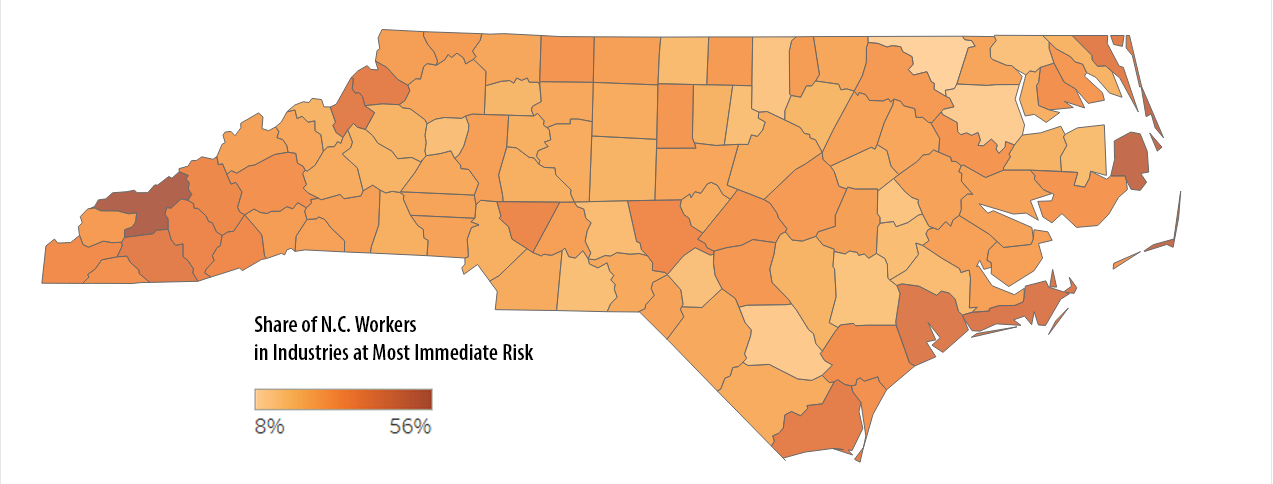RALEIGH (March 20, 2020) – Local labor market data was released today for January 2020 in North Carolina.
“The COVID-19 virus poses an economic risk unlike anything most of us have ever seen. The hammer is going to fall first and hardest on low-wage workers in restaurant, retail, tourism, and other recreation jobs. Making matters even worse, many of the communities facing the largest immediate risk of job loss were already struggling economically and have little cushion to fall back on,” said Patrick McHugh, Senior Economic Analyst with the North Carolina Budget and Tax Center.” Leading economists now see a recession as a virtual certainty with impacts extending beyond the consumer service workers who take the first hit. Local communities need our state and federal governments to replace lost income and provide basic needs, or the economic and human toll of this crisis will be even more severe.”
Economic challenges facing North Carolina include:
- Risk of dramatic immediate job losses, with some already struggling communities particularly exposed: Over one-quarter of all employment in many communities are in industries at most risk to job losses in the first phases of the COVID-19 epidemic. Not all of these jobs will be lost, but the economic impact will be dramatic in many communities. As can be seen here, some of North Carolina’s most economically disadvantaged communities are most reliant on these types of service jobs, so are particularly vulnerable to the first wave of job losses. In the medium- and long-term job losses will almost certainly extend beyond these sectors as supply chains are disrupted, businesses pull back on investment, and lost personal income reduces consumer demand.

For complete data on country and metropolitan vulnerability to losses in the most immediately impacted customer services industries, visit NCJustice.org/labormarket - Many communities never recovered from the Great Recession: 49 of North Carolina’s 100 counties still have fewer jobs than before the financial collapse of 2008.
- Some communities lost jobs in the past year: 12 of North Carolina’s 100 counties lost jobs between January 2019 and January 2020. These counties include Avery, Beaufort, Bertie, Edgecombe, Gate, Hyde, Martin, McDowell, Mitchell, Nash, Washington, and Wilkes.
- Many communities were already experiencing elevated levels of unemployment: 61 of North Carolina’s counties had unemployment rates higher than the state average.
For charts showing the most recent data, visit the Budget & Tax Center’s Labor Market page at NCJustice.org/labormarket.
For more context on the economic choices facing North Carolina, check out the Budget & Tax Center’s monthly Prosperity Watch report.
The nonpartisan Budget & Tax Center is a project of the NC Justice Center, which works to eliminate poverty in North Carolina by ensuring every household in the state has access to the resources, services and fair treatment it needs to achieve economic security.
FOR MORE INFORMATION, CONTACT Patrick McHugh, Budget & Tax Center Senior Policy Analyst, at patrick.mchugh@ncjustice.org or 919-856-2183; or Mel Umbarger, Senior Communications Specialist, at mel@ncbudget.org
 Justice Circle
Justice Circle